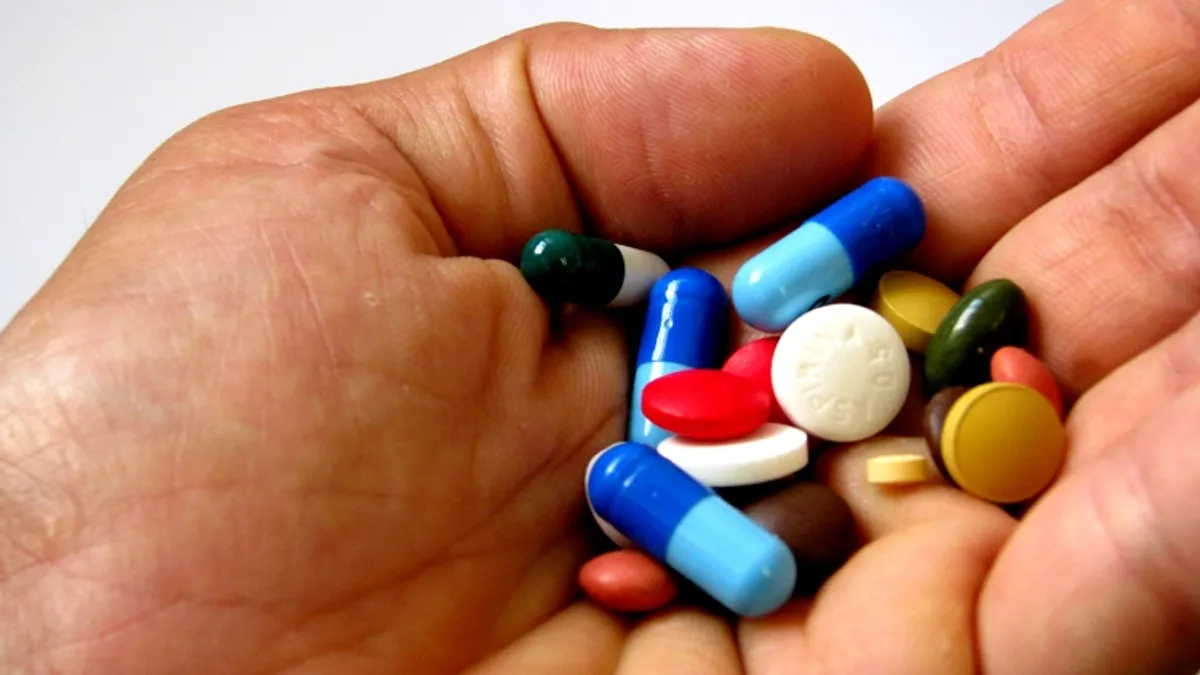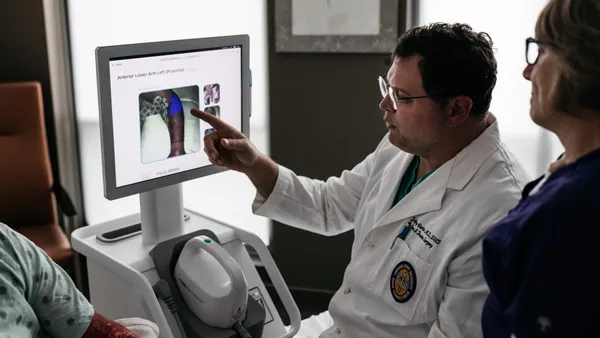Dive Brief:
-
Smartphone applications that remind heart patients when it is time to take their medication increased adherence to drug regimens in a study by researchers at the University of Sydney.
-
The study, funded by Australia's National Heart Foundation, suggests that basic, high-quality apps — often available for free via iTunes and Google app stores — are enough to improve medication adherence.
- Although such reminder apps have been available online for some time, the study is one of the first to look at whether they can influence behavior in people with heart disease.
Dive Insight:
Medication non-adherence is a big problem. The American Heart Association says an estimated three out of four Americans do not take their medication as directed.
Poor medication adherence takes the lives of 125,000 Americans annually, the group said. For patients with chronic conditions such as cardiovascular disease, the repercussions of not keeping blood pressure in check can include heart attack, heart failure, stroke and kidney failure.
"Patients with coronary heart disease can become overwhelmed with the amount of pills they are taking," said study author Julie Redfern at the University of Sydney. Some pills must be taken three times a day, she noted.
The randomized clinical trial followed 160 patients with an average age of 58 over a three-month period. Patients used either a basic app with one-time reminder alarms or an advanced app with features such as snooze alarms and dosage tracking, or they followed their usual routine without app reminders.
Outcomes were measured by the eight-item Morisky Medication Adherence Scale (MMAS-8). At three months, patients who used an app had higher adherence, with an average MMAS-8 score of 7.11, compared to the usual care group with an average score of 6.63. No additional benefits were gained by using the advanced app, the researchers said. The study was published in the journal Heart.
Further studies are needed to look at whether apps can keep people on their medication over longer time periods and to study effectiveness for other health conditions, such as cancer, lung disease and stroke, the researchers said.













